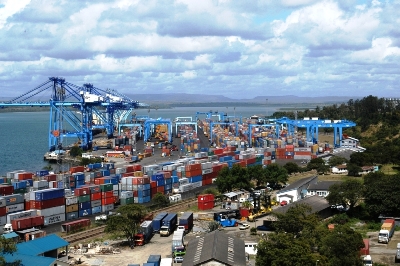Removal of non-tariff barriers boost East African trade
By Julius Uma
May 26, 2016 (JUBA)- Removal of key Non-Tariff Barriers (NTBs) has contributed to a 14% reduction in time taken to import goods from one East African country to another, a recent independent evaluation of the NTBs trade programs within East Africa has shown.

The independent evaluators based their findings on NTBs program valued at US$ 7.89 million across the EAC partner states, supported by TradeMark East Africa (TMEA).
The programme, it said, identified 112 NTB’s and had resolved 87 of them by the time of the evaluation was done.
According to the report, the enactment of The EAC Elimination Act positively impacted on the NTBs programme.
The Act seeks to empower the second clause under Article 13 of the Customs Union, which aims at establishing a legal mechanism for identifying and monitoring removal of NTBs.
Establish in 2005, the Customs Union, through its Protocol, subsequently agreed to strive towards the removal of internal taxes and non-tariff barriers on intra-EAC trade.
“This is a significant milestone in the growth and development of EAC. Non-Tariff Barriers remain an obstacle in growing prosperity in the EAC region,” acknowledged Frank Matsaert, the CEO of TradeMark East Africa (TMEA).
TMEA, he said, invested around US$7.89 million in the NTBs project and total programme benefits are expected to be in the range of US$35-45 million at constant trade volumes.
“A reduction of NTBs will invariably lead to more trade in the region, which is ultimately our goal, of growing prosperity through trade,” added Matsaet.
A reduction of transit transport time, the report says, has led to reduction in cost of transporting goods in the region. For instance, it adds, NTBs reduction has contributed to the reduction in cost of transporting a 40 foot container from Mombasa to Kigali, from US$6,500 in 2011 to just US$ 4,800.
This, evaluators estimated, generated a saving of approximately US$7 million on the Mombasa-Kigali route.
“Similarly, inland transportation times from Dar es Salaam to Kigali dropped considerably, now to 3.5 days,” it was noted.
The time taken to export from Uganda has successfully reduced from 35 days in 2010, to less than 30 days in 2015.
Moses Ahabwe, a Uganda trader, admits that the removal of NTBs has tremendously increased regional trade by unlocking economic potential through, increased physical access to market, enhanced trade environment and had generally improved business competitiveness in East Africa.
“Any increase in trade activities contributes to increased economic growth, a reduction in poverty and subsequently increased prosperity,” he told Sudan Tribune.
Statistics from Uganda’s trade ministry show that the conflict in South Sudan had negatively affected trade in the country. Very traders were willing to take goods to South Sudan due to insecurity, which affected Uganda’s exports.
Commodity prices also shot up due to the devaluation of the local currency, South Sudanese Pound, which has gravely impacted on the transport sector in the country.
The most affected are importers of food items and general household goods who have to deal with sharply increased prices to bring in goods from neighbouring Uganda, Kenya and Sudan. Many investors have left local and regional businesses collapse, while unemployment has increased.
Formal exports to Sudan reportedly earned Uganda $80.83 million in financial year 2012/13, $236.28 million in 2013/14 and $308.54 million in 2014/15. Similarly, informal exports for Uganda stood at $127.6 million in financial year 2012/13, $125.3 million in 2013/14 and 113.67 million in 2014.15, which showed why South Sudan is Uganda’s biggest trade partner.
South Sudan, which recently joined the EAC, is a big beneficiary of Northern Corridor and will gain from various interventions that have increased the corridor efficiency. In South Sudan, TMEA is working with National Monitoring Committee to implement NTBs elimination strategy. As part of the move, however, the various NTB’s which used to be encountered along Nimule-Juba border, such as check points, have been eliminated, in addition to Police and customs officers trained on integrity and transparency and a communication plan developed for the sustainability.
William Deng, a South Sudan wholesale businessman, says removal NTBs has contributed to reduction in time taken to import goods from East African countries.
Analysts, however, argue that elimination of NTBs still remain a great challenge to, not only regional trade and integration, but also a subject that partner states grapple with in the quest of growing trade within the regional bloc. Despite this fears, the widely held view is that elimination of NTB’s to trade remains priority for TMEA in reducing the costs of trade in EAC and increasing efficiency of EAC corridors.
(ST)
